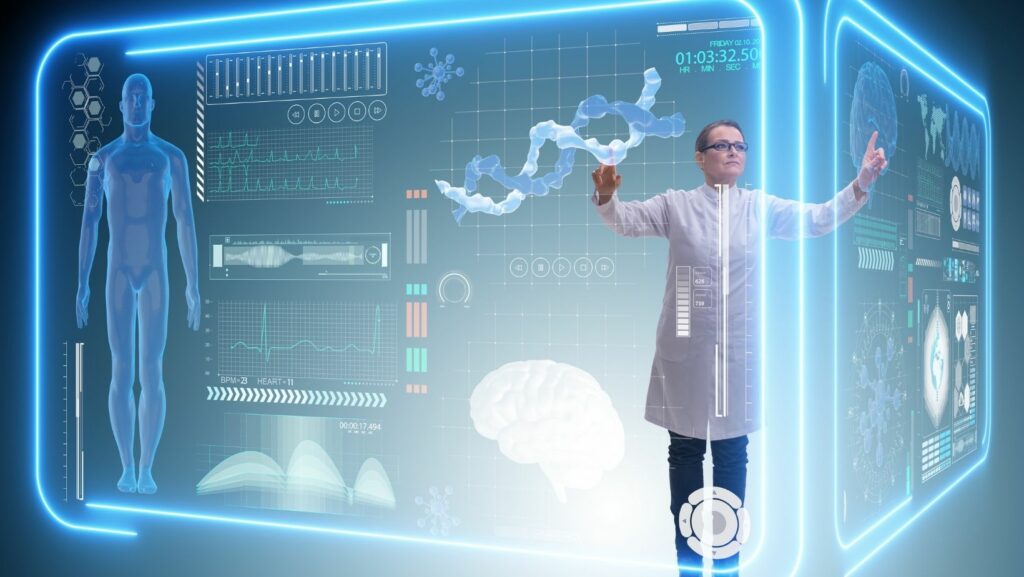
Artificial intelligence (AI) is revolutionizing the landscape of health information management, offering innovative solutions to streamline processes and enhance patient care. In the realm of healthcare, AI’s capabilities are reshaping how data is collected, analyzed, and utilized to drive informed decision-making. From predictive analytics to robotic process automation, AI is paving the way for more efficient and accurate health information management systems. Healthcare providers are increasingly turning to AI-driven technologies to optimize workflows, improve diagnostic accuracy, and personalize patient treatment plans. By harnessing the power of AI, organizations can unlock valuable insights from vast amounts of data, ultimately leading to better outcomes and increased operational efficiency.
Artificial Intelligence In Health Information Management
Artificial intelligence (AI) plays a pivotal role in enhancing data accuracy and efficiency in health information management systems. By employing AI algorithms, healthcare organizations can significantly reduce errors in data entry, ensuring that patient information is precise and up to date. AI-enabled systems can automate tasks such as coding, billing, and organizing medical records, leading to streamlined processes and improved operational efficiency in handling vast amounts of healthcare data.
Enhancing Data Accuracy and Efficiency

AI tools are revolutionizing the way healthcare institutions manage data by identifying inconsistencies and discrepancies in real-time, thereby enhancing data accuracy. Through natural language processing (NLP) and machine learning algorithms, AI systems can clean, structure, and standardize data, ensuring its quality and reliability. This not only reduces the risk of errors but also enables healthcare professionals to make informed decisions based on accurate and consistent information, ultimately improving patient care outcomes.
Improving Patient Outcomes with Predictive Analytics
AI-driven predictive analytics are transforming healthcare delivery by forecasting patient outcomes, disease progression, and treatment responses. By analyzing historical patient data and clinical variables, AI algorithms can predict potential health risks and recommend personalized treatment plans tailored to individual patients. This proactive approach to healthcare empowers providers to intervene early, prevent complications, and optimize patient outcomes. Additionally, predictive analytics help in resource allocation, optimizing workflows, and enhancing operational efficiency in healthcare settings.
Key Applications of AI in Health Information Management
Artificial intelligence (AI) is transforming health information management systems through various applications:
Electronic Health Record Optimization
AI plays a crucial role in optimizing electronic health records (EHRs) by automating data entry, ensuring data accuracy, and streamlining information retrieval. It eliminates the need for manual data entry, reducing human errors and enhancing the overall efficiency of managing patient records. Furthermore, AI algorithms can analyze vast amounts of data within EHRs to identify patterns, trends, and potential risks, enabling healthcare providers to make more informed decisions swiftly.
Medical Coding and Billing

In medical coding and billing processes, AI streamlines and automates tasks that were previously time-consuming and prone to errors. By leveraging AI algorithms, healthcare organizations can code procedures accurately, match them with appropriate billing codes, and submit claims efficiently. This not only reduces billing errors but also accelerates the reimbursement process, ensuring that healthcare providers receive payments promptly. AI-driven solutions in medical coding and billing enhance revenue cycle management and contribute to overall cost savings for healthcare institutions.
Challenges and Solutions in AI Implementation
Addressing Privacy and Security Concerns
- Enhancing patient data security is paramount in AI implementation.
- Implementing robust encryption protocols can safeguard sensitive health information.
- Conducting regular security audits ensures compliance with data protection regulations.
- Employing blockchain technology can enhance data integrity and transparency in healthcare systems.
Future Trends in AI for Health Information Management
As artificial intelligence continues to evolve, its impact on health information management will only grow stronger. The integration of AI in healthcare systems will lead to increased efficiency, accuracy, and personalized patient care. With advancements in predictive analytics and machine learning algorithms, healthcare providers can make data-driven decisions to improve outcomes. Additionally, AI will play a crucial role in enhancing data security measures, ensuring the protection of sensitive patient information. Embracing these future trends in AI for health information management will undoubtedly shape the future of healthcare delivery and patient experiences.



